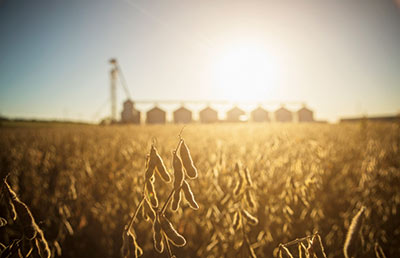What Does the Cooperative Distribution Deduction Mean?

The Senate Tax Bill has a special 23% deduction for business income. However, there are two limits to the deduction. First, the deduction is limited to 50% of wages paid by the farm. Second, there is a limit based on taxable income. Therefore, even if a farm has net farm income, if their net income from all sources is negative, then they will not receive the deduction.
However, there is a special provision in the proposed bill that says if a farmer receives distributions from cooperatives, then the farmer is allowed to take the 23% deduction without regards to the wage limitation. It would still remain subject to the overall taxable income limitation.
This may result in some cases where the farmer would be better off selling their grain to a coop than to others. Let’s review an example:
Farmer Adams has a large of amount of non-farm income from wages, etc. His total income is $1 million and his net farm business income is zero. During the year, he has two options. He can sell $1 million of grain to his local co-op or he can sell it to the ethanol plant. If he sells it to the ethanol plant, his 23% deduction is zero since his farm income is also zero. However, if he sells it to the co-op, he is able to generate a $230,000 deduction which would save him $80,500 of income taxes (in the 35% bracket).
Now let’s assume his total income is only $500,000, then his deduction would be equal to $500,000 times 23% or $115,000 saving him approximately $40,000 in tax.
If his taxable income was zero, no extra deduction would result from this situation.
We are not sure if this will be the final provision in the tax bill that comes out of the conference committee, but it appears that a farmer in certain situations may be better off selling grain to a co-op than to other parties assuming that this provision is retained in the final bill.
We will keep you posted.
Paul Neiffer is a certified public accountant and business advisor specializing in income taxation, accounting services, and succession planning for farmers and agribusiness processors. Paul is a principal with CliftonLarsonAllen in Walla Walla, Washington, as well as a regular speaker at national conferences and contributor at agweb.com. Raised on a farm in central Washington, he has been immersed in the ag industry his entire life, including the last 30 years professionally. Paul and his wife purchase an 180 acre ranch in 2016 and enjoy keeping it full of animals.

Comments are closed.